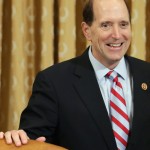Lew Can Use Tax Rule to Slow Inversions according to Ex-Official

The U.S. Treasury Department should use immediate stopgap regulations to make offshore transactions known as corporate inversions less lucrative, said the department’s former top international tax lawyer.
The administration can unilaterally limit inverted companies from taking interest deductions in the U.S. or from accessing their foreign cash without paying U.S. taxes, Stephen Shay said in an interview and in an article published today in Tax Notes.
“If you take away the incentives, a large portion of these deals would not happen because they are indeed tax-motivated,” said Shay, who left the Obama administration in 2011 and is now a professor at Harvard Law School.
Companies including Medtronic Inc. (MDT) and AbbVie Inc. (ABBV) have pending inversion transactions in which they purchase a smaller foreign company and then move the combined corporation’s legal address outside the U.S. In most cases, companies barely change their operations and don’t move their executives.
The administration has been pressing Congress for retroactive action to make it harder for companies to invert and insisting that Treasury can’t act on its own. Congress is deadlocked on the issue and is set to leave Washington late this week for a five-week recess.
Treasury Secretary Jacob J. Lew has said the government can’t address inversions without legislation.
“We have looked at the tax code,” Lew said on CNBC July 16. “There are a lot of obscure provisions that we do not believe we have the authority to address this inversion question through administrative action. If we did, we would be doing more.”
‘Corporate Deserters’
Last week, President Barack Obama described the companies as “corporate deserters” who take advantage of the U.S. legal framework and government programs without paying their fair share of taxes.
“The vast majority of American businesses play by the rules,” the president said in Los Angeles July 24. “But these companies are cherry-picking the rules. And it damages the country’s finances.”
Unlike proposed legislation from the administration and congressional Democrats, Shay is focusing more on the benefits companies receive after an inversion than on limits that prevent a company from moving its legal address offshore.
“I view it as a stopgap” until Congress acts, he said. “It’s a stopgap that may have to last a long time.”
Lower Rates
Interest deductions in the U.S. are attractive to inverted companies because of the difference between the 35 percent U.S. corporate tax rate and lower rates in other countries. Adding debt to the U.S. subsidiary that remains after an inversion reduces U.S. taxable income and effectively shifts the income to a lower-taxed jurisdiction.
“We shouldn’t make it advantageous to be a foreign-owned business in the United States,” said Bret Wells, a former corporate tax lawyer who is a professor at the University of Houston. “We shouldn’t treat those companies better than our U.S. multinational firms. And under the current rules, we do.”
The practice of reducing U.S. income is known as “earnings stripping,” and a 2007 Treasury Department study said that inverted companies engage in it.
Limits on interest deductions have gained attention in Congress, and Democratic Senator Charles Schumer of New York has said he plans to introduce a bill that would limit U.S. interest deductions for companies that underwent an inversion.
Foreign Earnings
Shay said the Treasury Department could issue regulations that characterize some of inverted companies’ new U.S. debt as equity, which would prevent companies from taking the full deduction. In his article, he cited several sections of the U.S. tax code that he said provide the Treasury with regulatory authority.
He said he’d limit companies from accessing foreign earnings that haven’t been repatriated and taxed by the U.S.
Medtronic, for example, which is merging with Covidien Plc (COV), plans to use a loan of its offshore earnings to finance the deal.
Limits on interest won’t necessarily stop inversions, because companies would still see benefits from lighter taxes on future earnings and the greater ability to use them globally, said Charles Kolstad, counsel at Venable LLP in Los Angeles.
“You’re going to continue to see inversions done until Congress does something,” Kolstad said. “The only thing that might slow down the pace of inversions is the lack of foreign companies that are suitable candidates to do transactions with.”
Source: bloomberg





























